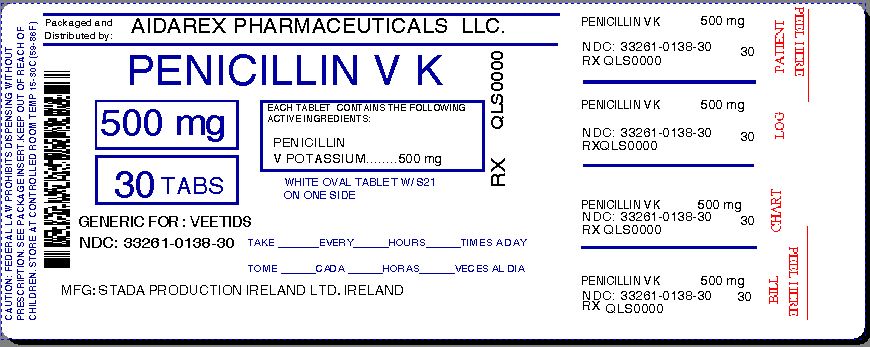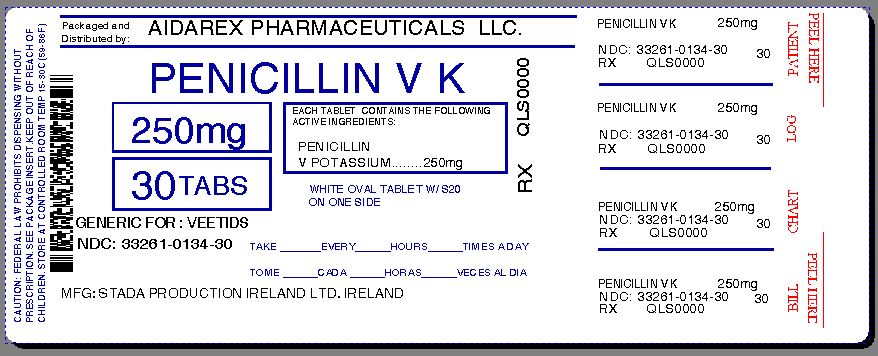Modern medicine has evolved so much so that sooner or later every breastfeeding mother needs to take it in one form or other. Medication that is present in mothers blood will transfer into her breast milk to some extent. Most drugs do so at low levels and pose no real risk to infants but then there are some exceptions. In This post will discuss whether Penicillin V Potassium Tablet is safe in breast-feeding or not.
What is Penicillin V Potassium Tablet used for?
To reduce the development of drug-resistant bacteria and maintain the effectiveness of Penicillin V Potassium Tablets, Penicillin V Potassium for Oral Solution and other antibacterial drugs, Penicillin V Potassium Tablets, and Penicillin V Potassium for Oral Solution should be used only to treat or prevent infections that are proven or strongly suspected to be caused by susceptible bacteria. When culture and susceptibility information are available, they should be considered in selecting or modifying antimicrobial therapy. In the absence of such data, local epidemiology and susceptibility patterns may contribute to the empiric selection of therapy. Penicillin V Potassium Tablets, USP and Penicillin V Potassium for Oral Solution, USP, are indicated in the treatment of mild to moderately severe infections due to penicillin G sensitive microorganisms. Therapy should be guided by bacteriological studies (including sensitivity tests) and by clinical response. NOTE: Severe pneumonia, empyema, bacteremia, pericarditis, meningitis, and arthritis should not be treated with penicillin V during the acute stage. Indicated surgical procedures should be performed. The following Infections will usually respond to adequate dosage of Penicillin V: Streptococcal infections (without bacteremia): Mild to moderate infections of the upper respiratory tract, scarlet fever and mild erysipelas. NOTE: Streptococci in groups A, C, G, H, L, and M are very sensitive to penicillin. Other groups, including group D (enterococcus) are resistant. Pneumococcal infections: Mild to moderately severe infections of the respiratory tract. Staphylococcal infections - penicillin G sensitive: Mild infections of the skin and soft tissues. NOTE: Reports indicate an increasing number of strains of staphylococci resistant to penicillin G, emphasizing the need for culture and sensitivity studies in treating suspected staphylococcal infections. Fusospirochetosis (Vincent's gingivitis and pharyngitis): Mild to moderately severe infections of the oropharynx usually respond to therapy with oral penicillin. NOTE: Necessary dental care should be accomplished in infections involving the gum tissue. Medical conditions in which oral penicillin therapy is indicated as prophylaxis: For the prevention of recurrence following rheumatic fever and/or chorea: Prophylaxis with oral penicillin on a continuing basis has proven effective in preventing recurrence of these conditions. Although no controlled clinical efficacy studies have been conducted, penicillin V has been suggested by the American Heart Association and the American Dental Association for use as an oral regimen for prophylaxis against bacterial endocarditis in patients with congenital heart disease or rheumatic or other acquired valvular heart disease when they undergo dental procedures and surgical procedures of the upper respiratory tract.1 Oral penicillin should not be used in those patients at particularly high risk for endocarditis (e.g. those with prosthetic heart valves or surgically constructed systemic pulmonary shunts). Penicillin V should not be used as adjunctive prophylaxis for genitourinary instrumentation or surgery, lower-intestinal tract surgery, sigmoidoscopy, and childbirth. Since it may happen that alpha haemolytic streptococci relatively resistant to penicillin may be found when patients are receiving continuous oral penicillin for secondary prevention of rheumatic fever, prophylactic agents, other than penicillin may be chosen for these patients and prescribed in addition to their continuous rheumatic fever prophylactic regimen. NOTE: When selecting antibiotics for the prevention of bacterial endocarditis, the physician or dentist should read the full joint statement of the American Heart Association and the American Dental Association.1
I am breastfeeding mother and I am using Penicillin V Potassium Tablet. Can it have any bad effect on my kid? Shall I search for better alternative?
As per our analysis Penicillin V Potassium Tablet contains only one ingredient and that is Penicillin v. We have analyzed Penicillin v and it seems to be safe to use Penicillin v while breastfeeding, that means usage of Penicillin V Potassium Tablet shall be safe while breastfeeding. Below you can check more details of Penicillin v usage in breastfeeding. We recommend you to go through provided detailed analysis as below take decision accordingly.
Penicillin V Potassium Tablet Breastfeeding Analsys
SafeCAS Number: 87-08-1
Penicillin V is excreted into breast milk in non-significant amounts without side-effects observed among breastfed infants from treated mothers. Plasma levels in those infants were shown to be low or undetectable. Penicillin is a broad spectrum antibiotic that is commonly used in Pediatrics and Neonatology with very good tolerance even in premature newborns. Be aware of false negative results that may be obtained from infants with bacterial cultures when the mother is on antibiotics. Eleventh WHO's Model List of Essential Drugs 2002: Compatible with breastfeeding.
Penicillin V Potassium Tablet Breastfeeding Analsys - 2
CAS Number: 87-08-1
Limited information indicates that penicillin V produces low levels in milk that are not expected to cause adverse effects in breastfed infants. Occasionally disruption of the infant's gastrointestinal flora, resulting in diarrhea or thrush have been reported with penicillins, but these effects have not been adequately evaluated. Penicillin V is acceptable in nursing mothers.

I am nursing mother and I have already used Penicillin V Potassium Tablet, what should I do?
As usage of Penicillin V Potassium Tablet is mostly safe while breastfeeding hence there should not be any concern. In case of any change in behavior or health of your baby you should inform your health care provider about usage of Penicillin V Potassium Tablet else no further action is required.
I am nursing mother and my doctor has suggested me to use Penicillin V Potassium Tablet, is it safe?
Definitely, Penicillin V Potassium Tablet is safe in lactation for baby. No wonder your doctor has recommended it.
If I am using Penicillin V Potassium Tablet, will my baby need extra monitoring?
No extra baby monitoring required while mother is using Penicillin V Potassium Tablet
Who can I talk to if I have questions about usage of Penicillin V Potassium Tablet in breastfeeding?
US
National Womens Health and Breastfeeding Helpline: 800-994-9662 (TDD 888-220-5446) 9 a.m. and 6 p.m. ET, Monday through Friday
UK
National Breastfeeding Helpline: 0300-100-0212 9.30am to 9.30pm, daily
Association of Breastfeeding Mothers: 0300-330-5453
La Leche League: 0345-120-2918
The Breastfeeding Network supporter line in Bengali and Sylheti: 0300-456-2421
National Childbirth Trust (NCT): 0300-330-0700
Australia
National Breastfeeding Helpline: 1800-686-268 24 hours a day, 7 days a week
Canada
Telehealth Ontario for breastfeeding: 1-866-797-0000 24 hours a day, 7 days a week
Drug Brands with same Active ingredients



